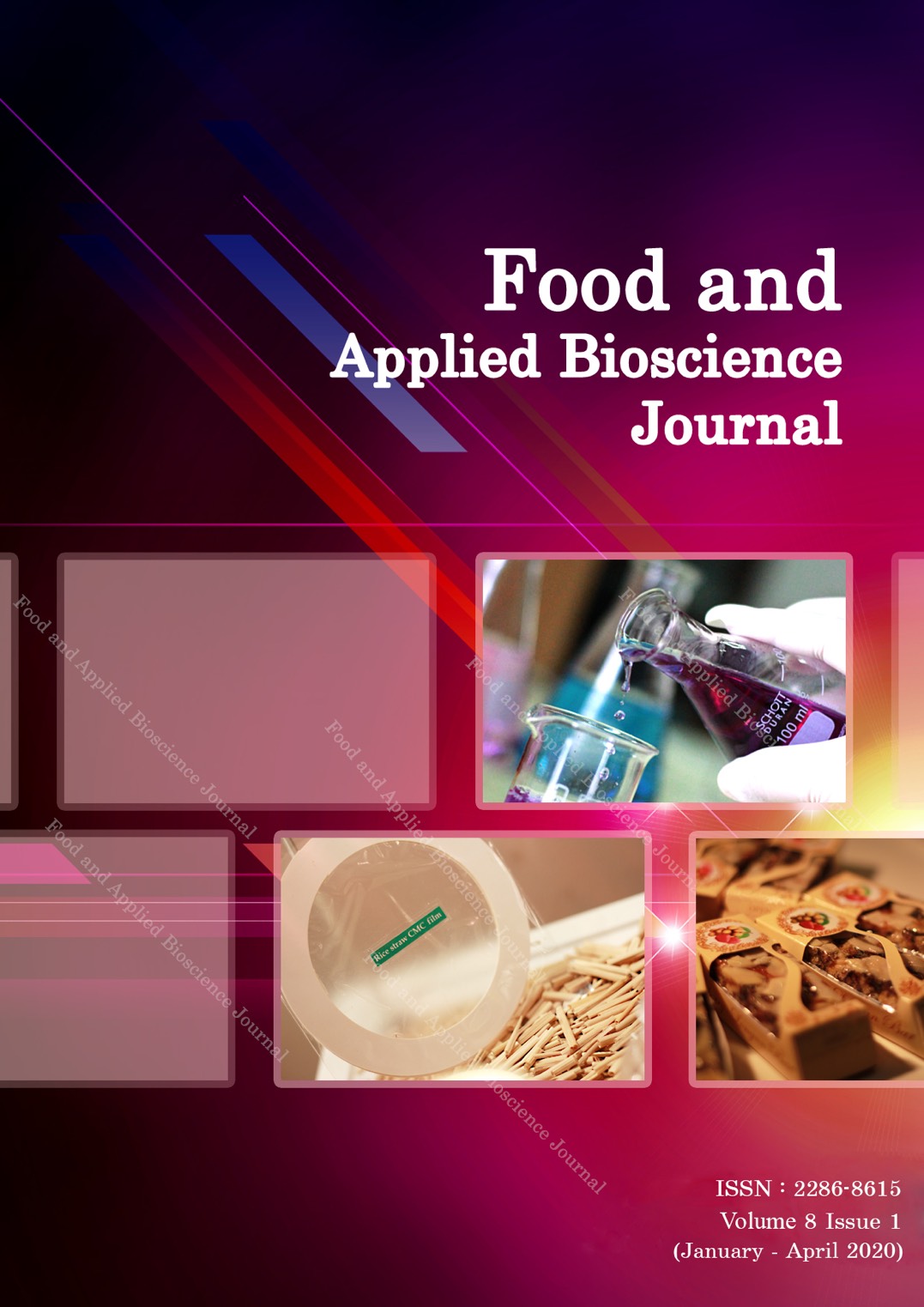Properties of Moringa oleifera leaf protein from alkaline−acid extraction
Keywords:
Biochemical properties, Functional properties, Moringa oleifera leaf, Leaf protein, Physical propertiesAbstract
Moringa oleifera (M. oleifera) is a perennial foliaged tree, widely cultivated due to it being an important source of essential nutrients. In this study, physical, functional, and biochemical properties of M. oleifera leaf protein were evaluated. The protein was obtained by alkaline−acid extraction at an amount of 77.44%. The leaf protein powder had 0.15 g/mL of bulk density and low water activity (0.35) and appeared with the value of L* 57.83. Water holding capacities and oil holding capacities of leaf protein were adequate for use in food formulations such as 2.31 g water/g protein and 3.55 g oil/g protein, respectively. Protein solubility (PS) and emulsifying and foaming properties were significantly pH−dependent (P<0.05). The minimum solubility was obtained at pH 4 (9.28%), whereas the maximum PS was observed at pH 10 and pH 12 (58.01% and 58.30%, respectively). At pH 10, the foaming capacity was high, while it was low (up to 20 min) in terms of foaming stability (FS) since good FS was recorded at pH 3 and pH 6. The maximum emulsion capacity was greater at acidic pH (pH 3) and basic pH (pH 10). Contrarily, maximum emulsion stability (65.81%) was observed at pH 4 followed by pH 10 (62.26%). M. oleifera leaf protein powder showed an adequate digestibility of 75.54%. So, it illustrated on SDS−PAGE a complete digestion of all protein bands under reducing and non−reducing conditions after 24 h incubation with pepsin−pancreatin enzymes. Leucine (67.14 mg/g), tryptophan (12.10 mg/g), isoleucine (28.71 mg/g), and histidine (19.07 mg/g) were the most predominant amino acids that meet requirements of FAO/WHO (1991) for 2−5 years and 10−12 years old children. M. oleifera protein extract produced by alkaline−acid extraction can probably be used as an ingredient in food products.
Downloads
Published
How to Cite
Issue
Section
License
Copyright (c) 2020 Food and Applied Bioscience Journal

This work is licensed under a Creative Commons Attribution-NonCommercial-NoDerivatives 4.0 International License.






